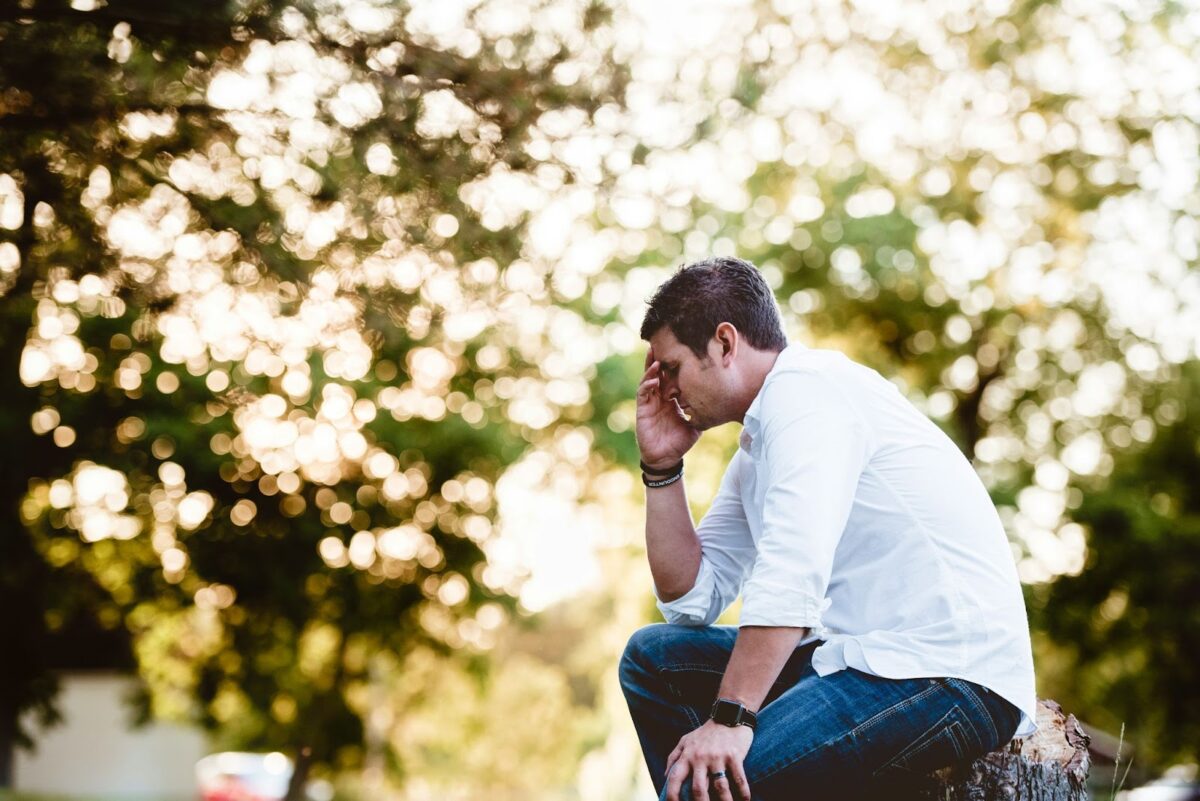Suffering from dizziness can be common, but of course, not ideal, specially if we suspect it is linked to a not-so-perfect sleep life. Understanding the relationship between sleep deprivation and dizziness can help, as it affects not just our physical balance, but also our daily functioning.
In this article, we delve into the question “Can lack of sleep cause dizziness?”, offering insights into the symptoms and causes. Let’s begin, shall we?
Can Lack of Sleep Cause Dizziness?

Source: Unsplash
First off, let’s begin answering the big question: Can lack of sleep cause dizziness? The answer is not that simple, as you can imagine.
That’s because dizziness, a feeling of unsteadiness or lightheadedness, is often not immediately associated with sleep deprivation. And can help for several reasons such as nutrition, drinking, lifestyle factors, physical activity and many other possible causes.
However, recent studies and medical research have begun to draw clear connections between inadequate sleep and the onset of dizziness. This correlation is rooted in the body’s intricate balance system, which relies heavily on adequate rest to function properly. When sleep is compromised, so is the body’s equilibrium, leading to symptoms of dizziness and imbalance.
A study titled “Sleep and dizziness in middle-aged and elderly persons. The study used the Pittsburgh Sleep Quality Index to measure sleep quality and discovered that poor self-reported sleep quality was notably associated with increased dizziness.
Interestingly, this association was stronger for non-vestibular (not related to the inner ear) dizziness.
Another study investigated the link between sleep quality and various types of dizziness in 237 patients.
The study concluded that there is a notable association between sleep quality and certain types of dizziness, particularly psychogenic dizziness and nonspecific dizziness, highlighting the importance of considering sleep disturbances in these patients.
Research also focused on the impact of long-term vestibular disorders on sleep quality. The study involved 137 patients with various vestibular disorders, assessing their sleep quality through the Pittsburgh Sleep Quality Index (PSQI).
The study underscored that the duration of vertigo symptoms strongly correlated with worse sleep quality, even after adjusting for multiple variables.
These results suggested that chronic vestibular disorders, such as unilateral vestibular hypofunction, can have a substantial negative impact on sleep, emphasizing the need for further research into the interaction between vestibular disorders and sleep.
In a study examining the potential association between dizziness and sleep quality in teachers, a cross-sectional analysis was conducted with 96 school teachers, averaging 47.8 years in age.
The study found a moderate correlation between the DHI scores and total time in bed, as well as sleep efficiency, suggesting that sleep quality is an important factor to consider in both the assessment and rehabilitation processes for dizziness, especially among teachers.
How can Lack of Sleep Make You Dizzy?
The disruption caused by insufficient sleep extends to the vestibular system, a key component responsible for maintaining balance.
This system, closely intertwined with the brain’s sleep-wake cycle, can become unbalanced when deprived of restorative sleep. The result is a disorientation in spatial perception, leading to dizziness.
This phenomenon is particularly noticeable in high-stress professions, where the demand for mental alertness is high, yet sleep is often disrupted or inadequate. So, don’t worry, if you suffer from lack of sleep or poor sleep quality, you are not alone in this struggle. Approximately 50 to 70 million Americans have some kind of sleep disorder.
Can Lack of Sleep Cause Lightheadedness?
Lightheadedness, a sensation of feeling faint or on the verge of passing out, is another symptom linked to sleep deprivation.
When the brain is not well-rested, it struggles to coordinate bodily functions efficiently, leading to a reduction in cognitive abilities and physical coordination.
This can manifest as a feeling of light-headedness, impacting daily activities and overall quality of life.
You should always consult with a healthcare professional, as lightheadedness can occur for several reasons, not only poor sleep quality.
How to Improve Dizziness

Source: Unsplash
Improving dizziness, particularly when related to sleep deprivation, requires a multifaceted approach. While enhancing sleep quality is fundamental, other factors play significant roles:
- Balanced Nutrition: A well-rounded diet rich in vitamins and minerals supports overall body function, including balance and coordination. Incorporating fresh fruits, vegetables, whole grains, and lean proteins can have a positive impact on your health, thereby reducing dizziness.
- Optimized Sleep Environment: Creating a comfortable and conducive sleep environment is essential. This includes maintaining a quiet, dark room at a comfortable temperature and minimizing disruptions from electronic devices.
- Regular Physical Activity: Engaging in regular exercise can strengthen the body’s core and improve overall balance, reducing the likelihood of dizziness. Activities like yoga, tai chi, or even light walking can be beneficial.
- Moderate Alcohol Consumption: Excessive drinking can adversely affect the vestibular system. Moderating alcohol intake can help in managing dizziness effectively.
- Stress Management: Chronic stress can exacerbate dizziness. Techniques such as mindfulness meditation, deep breathing exercises, and other relaxation methods can be helpful in reducing stress levels.
- Consulting Healthcare Professionals: Persistent or severe dizziness should be evaluated by healthcare providers. It could be a symptom of sleep disorders, inner ear problems, or other medical conditions. Professional advice is crucial for proper diagnosis and treatment.
Disclaimer: The information provided in this article is for informational purposes only and is not intended to substitute for professional medical advice, diagnosis, or treatment.
Frequently Asked Questions
We brought together some quick answers to the most common questions about the link between lack of sleep and dizziness.
- Can a Lack of Sleep Make You Dizzy?
Yes, insufficient sleep can disrupt the body’s balance system, leading to dizziness. However, there can be another reason, so be sure to consult with your doctor to assist you in determining with more accuracy the cause of your dizziness.
- Does Sleeping Help with Dizziness?
Adequate and quality sleep is beneficial in alleviating dizziness, especially if it is caused by sleep deprivation. Be sure to see your doctor to better understand what you can do to improve your symptoms.
- What are the Red Flags for Dizziness?
Persistent, severe dizziness, especially if accompanied by other symptoms like headaches or vision issues, warrants a medical evaluation. If you are suffering from this, consult with a doctor at once.
- Why am I so Dizzy All Day?
Continuous dizziness could be due to various factors, including inadequate sleep, stress, or other medical conditions, and should be assessed by a healthcare provider.
Recognizing the critical link between sleep and dizziness is essential for maintaining overall health and well-being.
Addressing sleep issues and ensuring sufficient rest can markedly reduce dizziness and enhance daily functioning and quality of life.
We hoped we could be useful in assisting you to solve your queries about lack for sleep and dizziness. Be sure to check out more of our articles on all-things-sleep
Disclaimer: The information provided in this article is for informational purposes only and is not intended to substitute for professional medical advice, diagnosis, or treatment.



